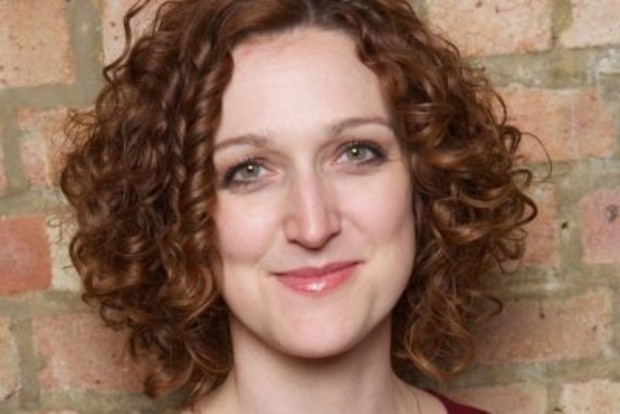
In my first blog of 2020, I introduce Suzanne Edmond, a director in the Department for Transport (DfT), who talks about her experience of dyslexia and the difference having open, honest conversations can make.
Suzanne benefited from coaching, and encourages all of us to talk about any barriers we may have and, as managers, to ensure workplace adjustments are in place so that we can all thrive at work.
Suzanne’s story
When I took up the role of Group Communications Director, I wrote a blog about communicating with dyslexia. I did this for a few reasons.
I wanted to be honest about the sort of leader I was going to be – an imperfect one. I wanted people to know what to expect from me in my new role (and to be prepared to provide colourful, succinct, story-rich and preferably verbal briefings).
I also wanted to show that you don’t need to be perfect to be a director in DfT – because, guess what, none of us is.
But most importantly, I wanted to show that you don’t need to fit a particular mould in terms of where you come from, where you were educated or, indeed, how you think.
I was really taken aback by people’s response to my blog, whether they identified with being dyslexic, were intrigued by it, or related it to another struggle they were having.
Dyslexia, dyspraxia, dyscalculia, and other words both difficult to spell (ah, the irony) and negative sounding. When did anything good ever start with ‘dys’!
Conversations and sharing stories
In DfT we started with a few events in an informal setting where we could share our stories and encourage others to do the same.
The response was overwhelming. Almost everyone had a link to one or more of the ‘dys’s, either personally or through a loved one. However, the main thing we heard is that we’re still not doing enough to support these brilliant people.
Many told of not knowing or understanding others’ frustrations with them. They talked about hiding their struggles and secretly working longer hours on things. Some sought support, with differing levels of success.
A wealth of creativity
When neurodiversity is recognised and properly supported it brings with it a wealth of creativity and new perspectives in people.
When it’s not, and I speak from experience here, it slowly erodes your confidence and leaves you struggling on tasks that you’re not necessarily best suited for. It can also mean we miss out on the many talents that neurodiverse people have.
Getting the right support
I was incredibly lucky that I met someone who recognised something in me that others hadn’t. She coached me through a difficult time, helping me realise my dyslexia helped me succeed as well as sometimes holding me back.
We need to do all we can to make sure that everyone has the opportunity to realise the best in themselves and get the right support. As managers we need to create an environment where colleagues feel they can speak up. It’s equally important that we are all as open as possible about any difficulties we may be experiencing.
What next?
We still have a long way to go in championing the creativity of thinking across the Civil Service.
I’m incredibly proud to sponsor the newly established DfT Neurodiversity Network. Our vision is to improve understanding and knowledge, build connections and raise confidence levels across the department – indeed, across government. We are also working with colleagues to explore what workplace adjustments we can offer.
Together we want to challenge misconceptions, build awareness of the brilliance that is so often hidden behind insecurity and misunderstanding, and help people get the support they need to be their very best.
Getting adjustments right
Suzanne’s blog reminds us of the need to ensure that we nurture the exceptional talent we have across our Civil Service. There is much we can do to support neurodiverse colleagues with any barriers they may experience in the workplace, from screen-reader technology and noise-cancelling headphones, to ‘softer’ adjustments, such as making extra time available where necessary to complete work, and, as Suzanne mentions, coaching. However, we must remain focused on the knowledge that our colleagues have unique talents we risk missing out on if we look at addressing barriers alone.
A toolkit developed by the Civil Service Dyslexia and Dyspraxia Network (CSDDN) will be launched early in 2020. It is designed to support line managers and those with dyslexia, dyspraxia, dyscalculia and dysgraphia conditions to have exactly the type of conversations Suzanne talks about.
If you would like to join the network please do get in touch: CSDyslexiaDyspraxiaNetwork@culture.gov.uk
It is important that we are all able to thrive. As one year has drawn to a close, we reflect on all we have achieved and look forward to making 2020 the Year of Inclusion. Thank you to colleagues like Suzanne for sharing their stories.

2 comments
Comment by Gavin Thomas posted on
Thank you Sir Philip for your continued report as the CS Disability Champion and to Suzanne for sharing with us her personal story.
I hope that this will inspire other colleagues that, with reasonable adjustments in place and the right level of support, such challenges can be overcome.
I feel that we have seen a significant increase in the level of awareness and understanding, which has helped those who have previously fallen between the cracks, to go on to have a fruitful career and ensure that their talents are being used in a much more effective way.
#disabilityconfident
Comment by Khayla posted on
Thank you for sharing your story & for bringing awareness about the barriers you & others may face at work.